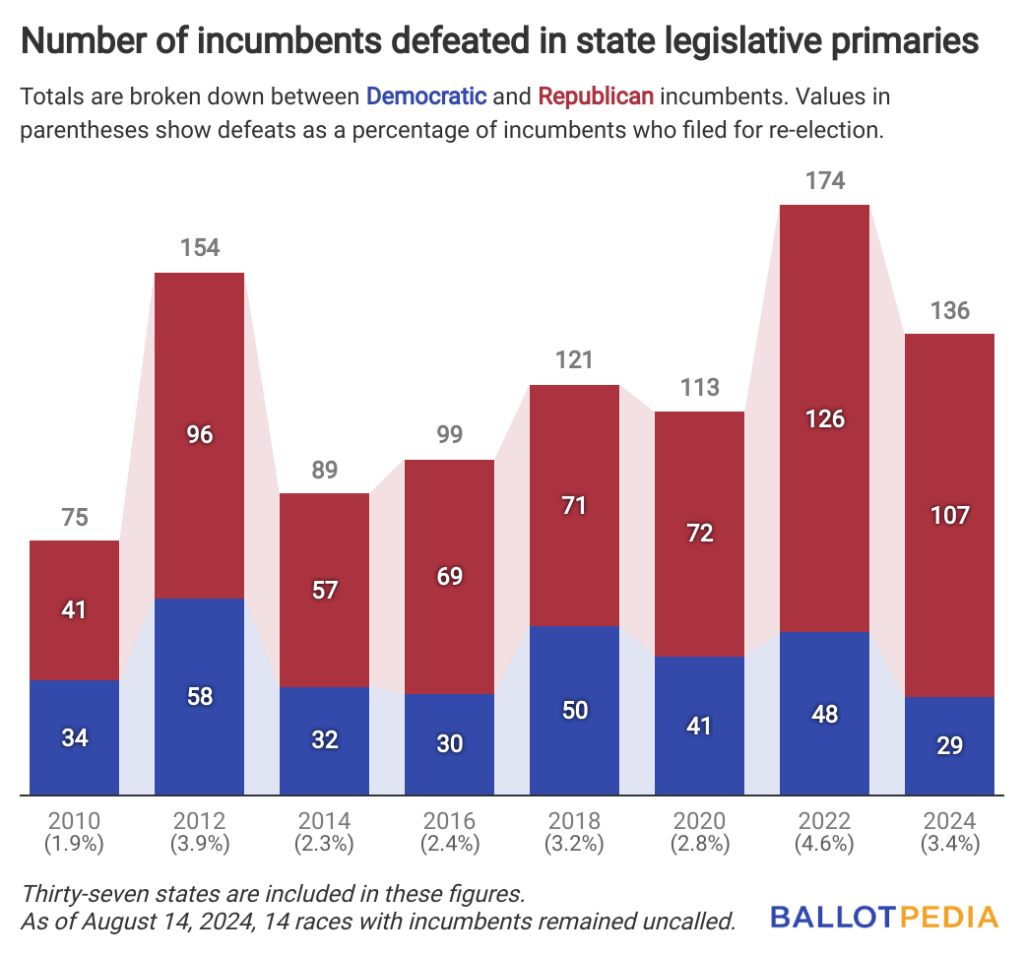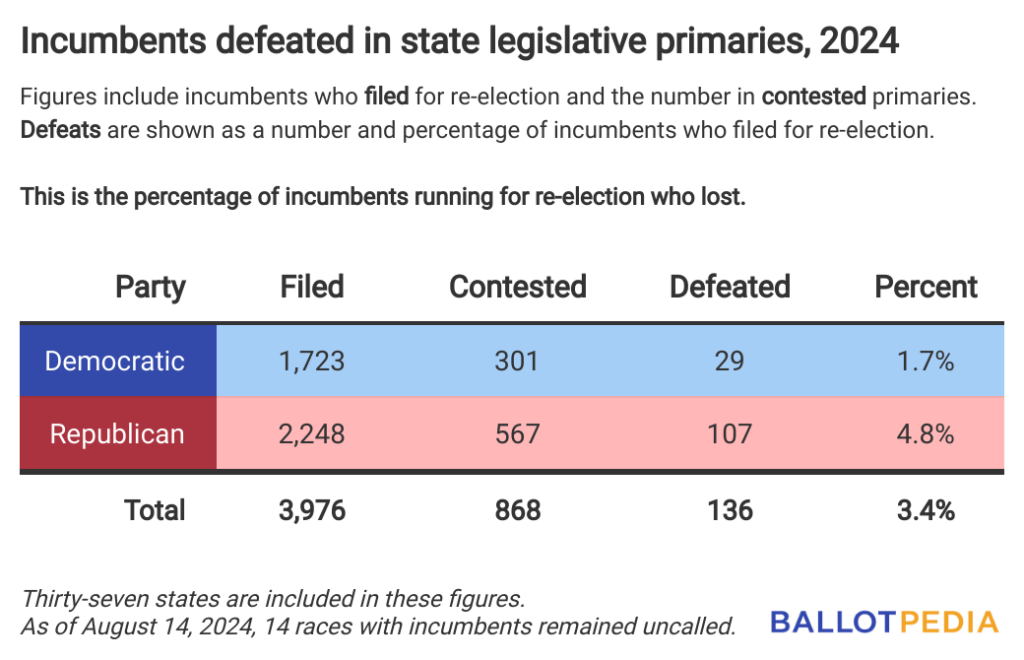In the 37 states that have held primaries so far this year, 136 state legislative incumbents—3.4% of all incumbents seeking re-election—have lost. That’s less than at this point in 2022, when 174, or 4.6%, of incumbents had lost in primaries. Four of the 136 defeated incumbents were legislative leaders: three Republican state senators and one Democratic House member. More on that below.

Last week, Connecticut, Hawaii, Minnesota, Vermont, and Wisconsin held state legislative primary elections. The majority of incumbents defeated primary challengers in Connecticut, Minnesota, and Vermont.
In Connecticut, CT Insider's Alex Putterman said, "Tuesday was a fairly good night for incumbent Democrats in the state legislature, most of whom won their primaries. In one major exception, endorsed Democrat Jonathan Jacobson defeated incumbent Rep. Anabel Figueroa of Stamford ... Otherwise, though, it was relatively smooth sailing for incumbents."
In Minnesota, the Star Tribune's Briana Bierschbach said, "Seven incumbents in the Minnesota House were also facing challengers, and six of them prevailed, including longtime Rep. Greg Davids, R-Preston, who has chaired the chamber’s Tax Committee in the past. DFL Rep. Brion Curran, DFL-White Bear Lake, fended off a challenger, as did GOP Reps. Dawn Gillman, Ron Kresha and Jeff Backer." The Minnesota Senate did not hold elections this year.
In Vermont, Seven Days' Kevin McCallum wrote, "Vermont's Incumbents Dominate in Legislative Primary Races: From Chittenden County to Brattleboro, office-holders proved tough to dislodge in the primaries."
The same can't be said for Hawaii and Wisconsin, however. In Hawaii, Kim Coco Iwamoto (D) defeated House Speaker Scott Saiki (D) 52.5%-47.5%. Saiki was first elected in 1994 and has served as speaker since May 2017. Spectrum News' Michael Tsai said local media expected a close race between Saiki and Iwamoto after the two candidates had competed against each other in the previous two election years. Tsai said, "Saiki had defeated Iwamoto by less than 200 votes in each of the last two elections.”
Saiki was one of four legislative leaders defeated this year. The others included: Idaho Senate President Pro Tempore Chuck Winder (R), Oklahoma Senate Majority Leader Greg McCortney (R), and West Virginia Senate President Craig Blair (R). To read more about their elections, click here.
In Wisconsin, four House incumbents (all Republicans) lost in primaries. This was the most incumbent defeats since we began gathering this data in 2010. As of August 14, 2024, one House race featuring an incumbent remained uncalled. No incumbents lost in the Senate.
Wisconsin Examiner's Baylor Spears wrote, "Voters across Wisconsin weighed in Tuesday on the first primary elections under the state’s new legislative maps. The maps were adopted earlier this year after the state Supreme Court ruled the previous maps unconstitutional." Because of this redistricting, Spears added, "[some] sitting lawmakers were in direct competition with one another." Spears said of one particularly noteworthy defeat, "Trump-endorsed state Rep. Janel Brandtjen (R-Menomonee Falls) lost her bid for reelection ... Brandtjen, who was first elected to the Assembly in 2014, became well-known for her support of legally impossible efforts to decertify Wisconsin’s 2020 election results and continued pushing election conspiracy theories. Her endorsement of the conspiracy theories sometimes put her at odds with Republican leaders in the Assembly, including Assembly Speaker Robin Vos."
Republican incumbents have lost at a higher rate than Democrats. Of the 2,248 Republican incumbents who ran for re-election, 107 (4.8%) have lost to primary challengers. For Democrats, 29 of the 1,723 who ran for re-election (1.7%) have lost.




